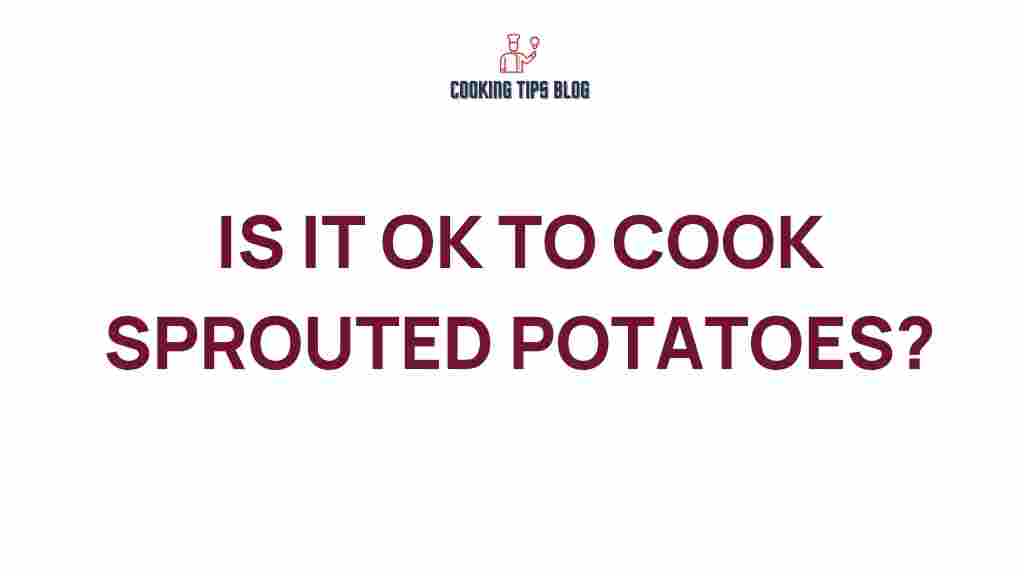The Hidden Dangers: Is It Safe to Cook Sprouted Potatoes?
When it comes to cooking and preparing food, many of us are unaware of the potential risks associated with certain ingredients. One such ingredient is sprouted potatoes. While potatoes are a staple in many kitchens and offer numerous culinary possibilities, the presence of sprouts can raise concerns regarding their safety and edibility. In this article, we will delve into the hidden dangers of sprouted potatoes, explore whether they are safe to cook, and provide you with guidelines to ensure you can enjoy your meals without worry.
Understanding Sprouted Potatoes
Before we address the safety concerns, it’s essential to understand what sprouted potatoes are. When potatoes are stored in conditions that are too warm or too humid, they can begin to sprout and develop small shoots. While this natural process is a sign that the potato is trying to grow, it can also indicate that the tuber has started to decompose or develop harmful compounds.
The Risks of Sprouted Potatoes
Sprouted potatoes can be risky to consume for several reasons:
- Solanine Production: One of the most significant dangers of sprouted potatoes is the production of solanine, a glycoalkaloid poison. Solanine can develop in the green parts of the potato and the sprouts themselves. Consumption of solanine can lead to symptoms such as nausea, vomiting, and even serious neurological issues.
- Decreased Nutritional Value: As potatoes sprout, their nutritional value can decrease. Sprouted potatoes may lose some of their vitamins and minerals, making them less nutritious than fresh potatoes.
- Texture and Taste Changes: Sprouted potatoes often have a different texture and taste. They can become soft, shriveled, or develop a bitter flavor, which can affect the overall quality of your dish.
Are Sprouted Potatoes Safe to Cook?
The question remains: are sprouted potatoes safe to cook? The answer is somewhat nuanced. While cooking can eliminate some harmful bacteria and microorganisms, it does not neutralize solanine. Here’s a closer look at what you should consider:
- Examine the Sprouts: If your potatoes have just a few small sprouts, you can cut them off and use the potato, provided there is no significant greening or softness.
- Check for Green Skin: If the potato has green patches or extensive sprouting, it’s best to discard it. Green areas indicate higher levels of solanine.
- Age Matters: Older potatoes are more likely to have developed higher concentrations of solanine. Fresh potatoes are a safer option.
How to Safely Prepare Sprouted Potatoes
If you decide to use sprouted potatoes, follow these steps to minimize risks:
- Inspect: Thoroughly check the potatoes for any signs of greening or soft spots.
- Peel: Peel away any green areas and cut off the sprouts. Make sure to use a clean knife to avoid contamination.
- Cook Thoroughly: Cook the potatoes at high temperatures (above 190°F) to ensure any potential bacteria are killed, but remember that this won’t eliminate solanine.
Alternative Uses for Sprouted Potatoes
If you’re hesitant to cook sprouted potatoes, consider these alternative uses:
- Composting: If you have a garden, sprouted potatoes can be a great addition to your compost pile. They will decompose and enrich the soil.
- Planting: If the sprouts are healthy, you can plant them in your garden. This can be a rewarding way to grow new potatoes.
Troubleshooting: What to Do If You Experience Symptoms
If you decide to consume sprouted potatoes and experience symptoms of solanine poisoning, here’s what you should do:
- Stay Hydrated: Drink plenty of water to help your body process the toxins.
- Seek Medical Attention: If symptoms are severe, such as difficulty breathing or persistent vomiting, seek medical help immediately.
Signs of Solanine Poisoning
It’s crucial to recognize the signs of solanine poisoning:
- Nausea and vomiting
- Abdominal pain and diarrhea
- Headaches and dizziness
- Neurological symptoms such as confusion or hallucinations (in severe cases)
Conclusion: Making Informed Choices with Sprouted Potatoes
In conclusion, while sprouted potatoes are not inherently dangerous, they do pose certain health risks that should not be overlooked. Understanding the signs of sprouted potatoes, knowing how to prepare them safely, and recognizing the symptoms of solanine poisoning are all essential for ensuring your health and well-being.
If you find yourself with sprouted potatoes, take the time to assess their condition carefully before deciding to cook them. When in doubt, it’s always best to err on the side of caution. Fresh, unblemished potatoes are always a safer and more nutritious choice for your meals.
For more information on food safety and preparation, visit the USDA Food Safety and Inspection Service. And if you’re looking for tips on how to store potatoes to prevent sprouting, check out our article here.
This article is in the category Healthy and created by Cookingtipsblog Team
